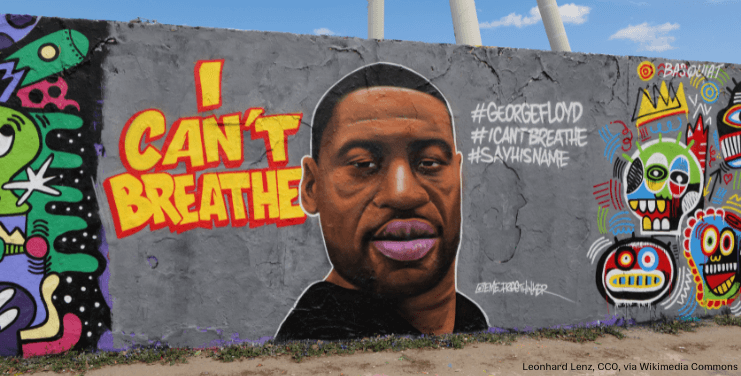Adapted from this week’s HBCU newsletter. Sign up NOW to make sure you get exclusive HBCU videos, news and analysis in your inbox every Wednesday morning.
Two years ago today, George Floyd was murdered by police.
There is no other way to start this newsletter than by recognizing this terrible, world-altering statement.
Because the truth is, so much of the good that has happened in the HBCU community over the past two years has stemmed from Floyd’s death and the ensuing protests that galvanized much of America (and guilted the rest).
Like his then-six-year-old daughter Gianna said, “Daddy changed the world.”
So what, specifically, has some of that change looked like for HBCUs?
—
Increased enrollment at HBCUs
Since fall 2019, college enrollment has fallen by more than 5 percent nationwide, research shows. But the opposite is true for many HBCUs.
A Washington Post analysis found that out of 17 HBCUs with at least 5,000 students in fall 2019, 10 reported preliminary fall 2021 headcounts that exceeded pre-pandemic numbers. For example, Howard University’s enrollment jumped 28 percent over two years, the analysis showed.
“I call it the Kamala Harris-George Floyd effect,” Kara Turner, Morgan State University’s vice president for enrollment management and student success, told the Post why more than half of the incoming class’ primary reason for applying was because they wanted to attend an HBCU.
Black students were increasingly looking for a place where they felt safe and understood, and HBCUs provide that comfort.
MacKenzie Scott donating more than half a billion dollars to HBCUs
Over two big donations in July 2020 and then again in December 2020, Scott changed the fortunes of nearly two dozen HBCUs and their students by donating a total of $560 million in unrestricted funds. Nearly all have put some of that money towards their endowments (which are woefully underfunded compared to their Ivy League peers). The money has also allowed them to hire more professors, upgrade facilities and more.
Scott’s donation has had snowballing effects, too. Xavier University President Reynold Verret told me last summer that it helped bring attention and more donors to the school.
Previously, a donor who might give $1 million to another institution similar in size to Xavier would feel that $100,000 or $250,000 to Xavier was a fair gift, Verret said.
“That notion of ‘they can do with less’ is something that I believe MacKenzie Scott’s gift and some other leaders are challenging by understanding what is the return on investment,” he added.
[Read more about the impact of her July 2020 and December 2020 giving]
Shifted corporate perception of HBCUs
Like Verret said, more corporate leaders are understanding that HBCUs are an important investment if they want to build a workforce that accurately reflects America — a major criticism of companies during the protests that followed Floyd’s death.
[Read our 2021 follow up on tech company commitments following the protests]
Clark Atlanta University President George French, who first started working in HBCU fundraising in 1996, echoed Verret’s sentiments.
“I had the fortune of seeing institutions support HBCUs because it was a moral imperative. ‘We’re making great money as a corporation, let’s be good corporate responsible citizens and give money to the HBCUs because it’s the right thing to do,’” French said.
“Now it’s about an investment. Before it was about a gift to help the organization. Now it’s about an investment and as you know, with an investment you expect a return,” he added.
“So, if you invest, you expect that Clark Atlanta University is going to have those students prepared for the workforce. We give you this money, you enhance capacity, they’ll be sharper when they come to us and they’ll be more ready. It’s become now more of a business proposition than a moral imperative, which is a good thing,” French explained.
—
That it took a brutal murder of a Black man at the hands of police to push leaders and philanthropists to start looking at HBCUs in a new light is truthfully an indictment of our system.
Change shouldn’t require cruelty, but too often it does.
My hope, though, is that the conscience of most Americans has been shifted over the past two years, their minds have been opened to the fact that vast inequality exists, but within our personal and professional lives, we can make a difference.
For me, George Floyd’s murder eventually led to working for The Plug. At the time of his death, I was working for a news organization where I felt I didn’t have much of a voice and was a cog in a machine, but I wanted to be able to do reporting where I was giving a megaphone to people that the media has routinely ignored.
And that’s exactly what I try to do now. So much reporting about HBCUs before 2020 (and to be fair, a lot since then) is about deficits — what HBCUs don’t have, what they aren’t doing, etc. But here, I want to talk about what they do have, what they are doing and what they have always accomplished: giving Black Americans a chance at an education and a better future.








